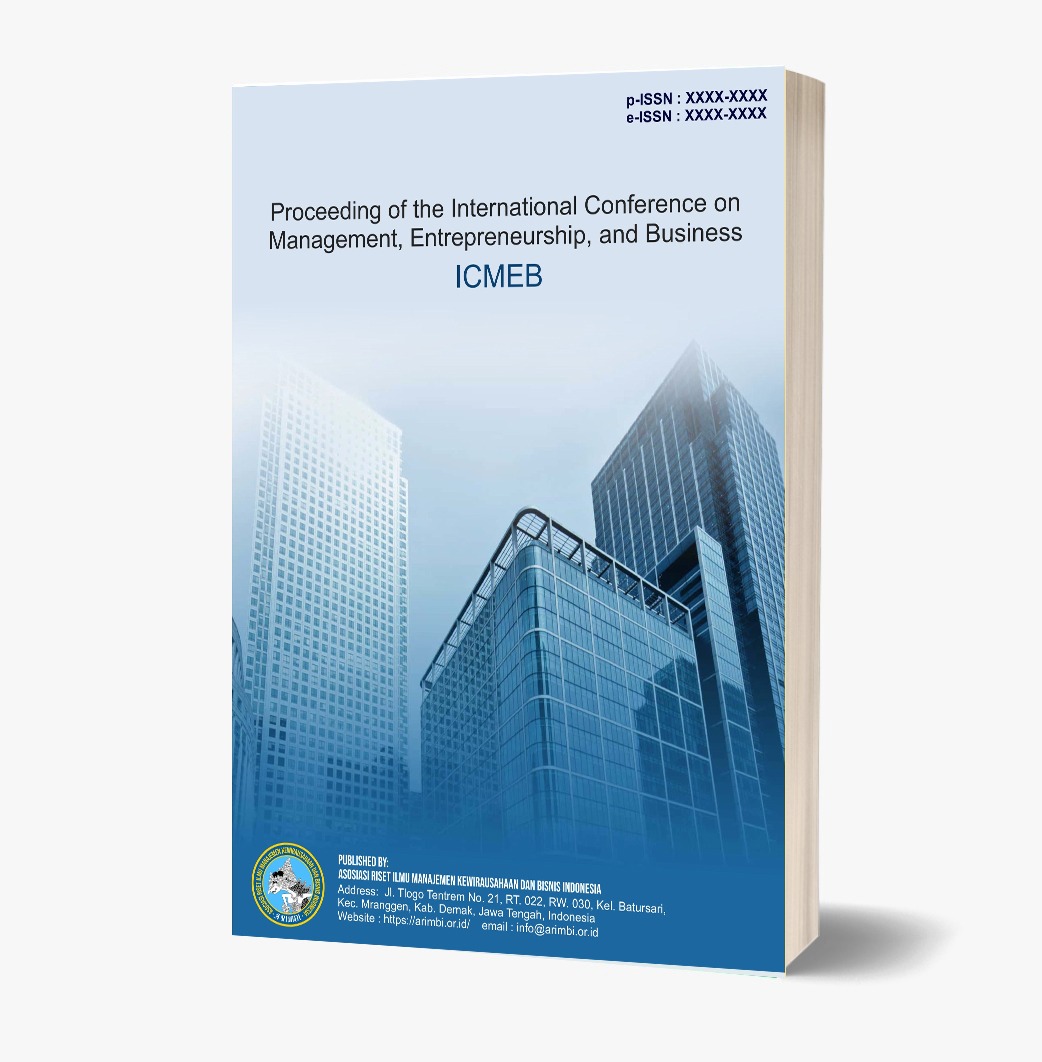Revitalization of Developing Countries' Economy Through Islamic Finance
DOI:
https://doi.org/10.61132/icmeb.v1i1.90Keywords:
Revitalization, Economy, Developing Countries, Islamic FinanceAbstract
Islamic finance is a financial system based on sharia principles, such as the prohibition of usury, gharar, and maysir, which emphasizes justice, financial inclusion, and sustainability. This study aims to analyze the role of Islamic finance in the revitalization of developing countries' economies, focusing on instruments such as sukuk, zakat, waqf, and microfinance. Through the literature study method, this study shows that Islamic finance is able to support infrastructure development, community empowerment, and reduction of social inequality. This study analyzes the role of Islamic finance in the revitalization of developing countries' economies through instruments such as sukuk, zakat, waqf, and microfinance. The results of the study show that Islamic finance is effective in supporting infrastructure development, community empowerment, and reduction of social inequality in countries such as Indonesia, Malaysia, and Pakistan. However, its implementation still faces challenges, such as low Islamic financial literacy and limited regulations. The conclusion of the study confirms that Islamic finance has the potential to drive inclusive and sustainable economic growth if supported by increased literacy, regulatory harmonization, and expanded access to Islamic financial products.
Downloads
References
Abdillah, F. D. (2023). Optimization of the role of Sharia bank in national economic recovery through results-based micro-finance. Ikonomika: Jurnal Ekonomi dan Bisnis Islam, 8(1). https://doi.org/10.24042/febi.v8i1.15932
Afandi, R. &. (2023). Islamic financial literacy and economic growth in developing nations. Masharif al-Syariah: Jurnal Ekonomi dan Perbankan Syariah. https://doi.org/10.33511/masharif.3.2023
Affandi, I. H. (2024). Islamic banking and sukuk as alternative financing sources in development. Jurnal Syarikah: Jurnal Ekonomi Islam.
Asep Dadan, & Rachmat Taufik, A. O. (2024). Analysis of halal supply chain policy and its impact on Sharia business and economic growth. Islamiconomic: Jurnal Ekonomi Islam, 15(1). https://doi.org/10.32678/ijei.v15i1.740
Dayu, I. H. (2024). Economic transformation: Navigating challenges and embracing opportunities in Islamic economics and finance across Southeast Asia. Journal of Science, Technology & Management.
Harahap, I. (2022). Kontribusi ekonomi Islam pada revitalisasi ekonomi negara-negara OKI. Al-Infaq: Jurnal Ekonomi Islam.
Harahap, I. (2023). Analisis dampak keuangan syariah pada pertumbuhan ekonomi di negara berkembang. Masharif al-Syariah: Jurnal Ekonomi dan Perbankan Syariah.
Harahap, I. (2023). Islamic finance for revitalizing economic growth in developing countries. Masharif al-Syariah: Jurnal Ekonomi dan Perbankan Syariah. https://doi.org/10.31219/osf.io/masharif
Irwan Trinugroho, R. B. (2023). Non-linear effect of Islamic banks’ liquidity risk to financial stability: Evidence from the Indonesian banking industry. Muqtasid: Jurnal Ekonomi dan Perbankan Syariah. https://doi.org/10.18326/muqtasid.v14i1.1-15
Kurniati, Y. M. (2024). The literature review of Islamic performance measurement models at Sharia banks in Indonesia. Journal of Islamic Accounting and Finance Research. https://doi.org/10.21580/jiafr.2024.6.1.19395
Mukti, T. (2024). Mapping the evolution of Sharia financial literacy and behavior: A bibliometric analysis from 1990 to 2023. Jurnal Review of Islamic Economics and Finance (RIEF).
Primastuty, I. H. (2024). Sharia investment, and population as drivers of Indonesia’s economic growth. Serambi: Jurnal Ekonomi Manajemen dan Bisnis Islam.
Siregar, A. M. (2022). Green economy and Islamic finance: A sustainable path in economic development. Al-Infaq: Jurnal Ekonomi Islam. https://doi.org/10.32678/al-infaq.v4i2.1023
Wahyudi, N. A. (2024). Islamic economic perspective on the implementation of zakat in promoting economic growth. Islamiconomic: Jurnal Ekonomi Islam, 15(1). https://doi.org/10.32678/ijei.v15i1.615






